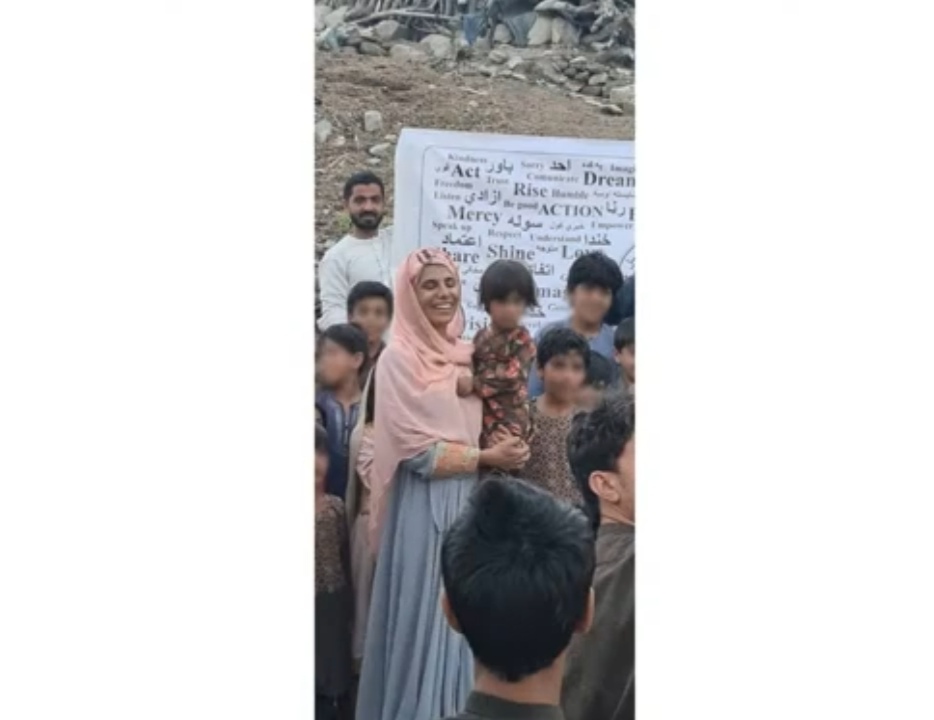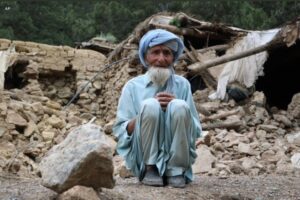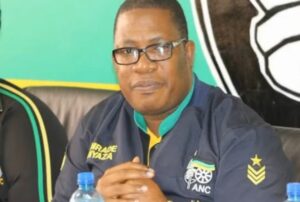Nadima Noor with children from Dunkai village Photo Screengrab
Afghanistan – The situation in Afghanistan is dire after a devastating earthquake hit the country. Currently there are many Non- Governmental Organisations (NGO) on the ground providing relief and aid for those affected. Rescue efforts are also underway to try and free those who might still be stuck under rubble.
It has been extremely difficult for the Afghanistan government to reach those in need. The earthquake has impacted towns in the mountainous regions of Afghanistan which are very hard to reach. Nadima Noor, Afghan activist and humanitarian worker, has been on the ground trying to get aid to those she can.
“I gathered oil and rice. We have these little packages that were given to us by the Turkish embassy. They happily give me whatever they have. I had like fifteen boxes, and I also had fabrics that they had given us.”
Distributing aid in the earthquake hit areas
The journey was not an easy one. The road to Paktika was a long and bumpy road. At times the car struggled to go on the journey as the roads were extremely steep. Noor and her team were determined to get the aid to where it needed to be, and these obstacles did not stop them.
Their first stop was the Gayan district in Paktika. When her and her team arrived, they found men distributing aid to the local people. Different organisations had already arrived to distribute aid. Noor and her team met with different survivors, mainly children who sought comfort with Noor.
Her team distributed the aid in a Dunkai. A village in Spera, Khost province. Although this area was badly hit, there has been no mention of it in any media channels. That is why Noor decided to offer aid in this area.
“This area has not been reported. Some of these areas have not been reported on. There’s no help that has been brought to them and there’s no survey. This is where we decide to drop our aid. These people have been wearing the same clothes since the last earthquake.”
Many of the families in this area have lost everything. Noor narrated seeing a man lose his 8-month pregnant wife, his sister and his sister-in-law. All that he had left was his young son. Speaking to the locals, many of them pointed to flat lands when asked about their homes.
Many lives could have been saved if infrastructure was in place
The harsh reality that Noor pointed out is that many of these people did not have to die. These people had been shut out from society. They lacked basic necessities and had no hospitals or clinics around. People were being rushed to different provinces hours away to receive medical care.
“These areas were neglected for 21 years. They don’t have proper clinics or proper hygiene. They don’t have schools. These people were completely shut out from support. These people basically had culture and a little bit of farming and barely surviving. Where was all these uh 21 years of aid and $3 trillion going? Why were these areas neglected? Why was the infrastructure lacking?”
Destruction revealed the importance of education
Afghanistan has been criticised for not allowing women to go to school. The importance of having an educated population become evident now more than ever. Noor met many men who were searching for female doctors to treat their wives. For her, it showed the importance of allowing women to be educated as many lives could have been saved.
“Now you realise the importance of women’s education. Now we realise that we need to focus on women’s education. If we had nurses, if we had doctors then that pregnant woman maybe would have survived. If not her then maybe the baby would have survived. Women that were getting pulled out who had injuries, who’s going to take care of them? We don’t have that kind of facility. We don’t have that kind of medical care because of lack of education. Now this government has the perfect opportunity to show themselves as competent leaders. The first thing they need to do is announce education.”
The important thing now is for the government to realise their mistake and rectify it. It is imperative the government reintroduce education and focus on educating the youth. Many situations could have been avoided had the right people been educated.
“Anybody with common sense, with a little bit of mind can look and say ‘oh my god that could have been avoided. That could have been avoided’. That all comes from the base of education. Now let’s realise that education is important. If we had engineers, they would have probably built a better structure.”
A lesson to be learnt from the earthquake
There are many who have suffered, lost loved ones and their possessions. For Noor, there will be time to mourn those losses, but it is important that lessons are learnt. Things are improved upon, and measures are taken to prevent such destruction from occurring again.
“We also need to now look at the long term. That’s focused on making this country independent and it’s disasters like this we have to learn from. Some of these villages are at the top of the mountain. Maybe we need to come down to the ground. Why do we need to be so high? It’s hard to bring a car up. Bring the cows up. Maybe we need to make some cultural changes that will benefit the people in the long term and make their life easier. I know we can learn a lot from this. Yes, it was not a pleasant scene to see, but we can do great things with this and make this community better. I am confident that we can turn this around and make it good for everybody.”
At the moment Noor and her team are busy handing aid out to those that are affected. They are focusing on areas that have not been mentioned in the media and may not be known to all.


